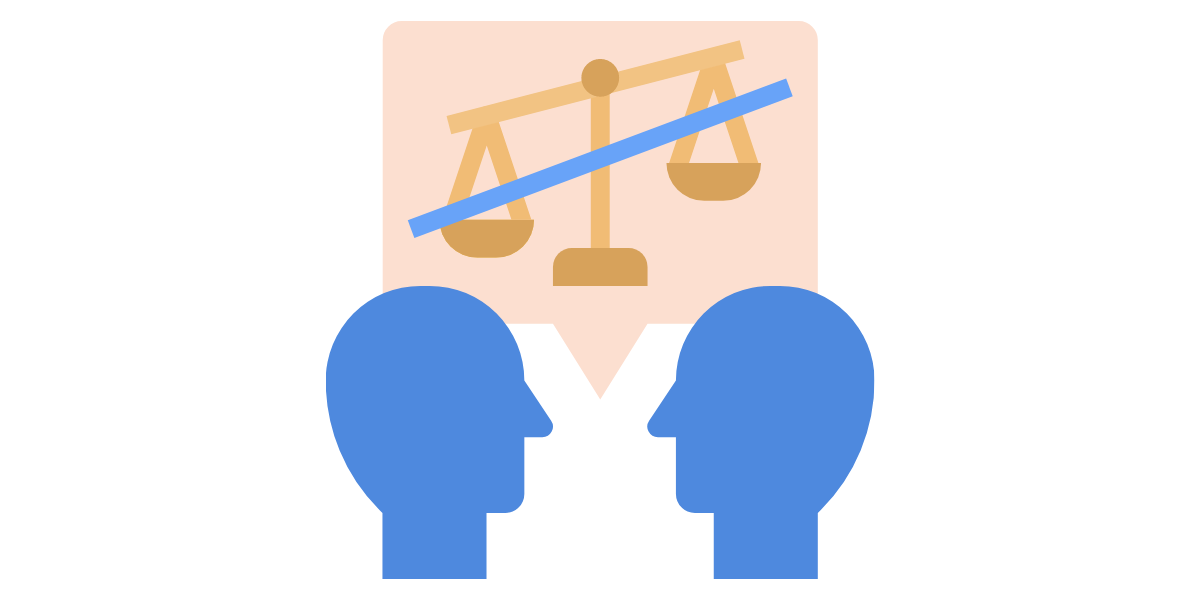
Cognitive bias can cause us to frequently deviate from rational judgment and draw conclusions about others and events without logic.
An excellent example to use at work is when you get recognition or an award, and you believe that your coworkers are equally happy as you are. However, it can be a source of frustration and hurt when we realize that this isn’t the case.
Cognitive bias could lead to choices that can have adverse consequences for us as well as others around us. But what can you do to recognize when you see it? What are you looking out for?
It is helpful to recognize some of the most common kinds of biases that affect individuals 10 of them are described in the following table:
1. Confirmation bias
This is a typical one that occurs whenever you search selectively for or interpret information to confirm your assumptions or preconceptions. If you often say, “see! I told you that!” This bias might be in play – but it could lead to limited thinking and short-sightedness.
2. Endowment effect
This is the habit of asking the same amount of sacrifice for an item that you are willing to pay to purchase. Consider trying to convince customers to buy your product without providing a compelling reason why they should.
3. The Gambler’s Fallacy
This is the belief that the future probability of occurrence is altered due to past events, but actually, they remain constant. A coin’s flip is always 50-50 for it to land on “tails even if it’s been on the tails for 100 times in the past.
4. In-group favoritism bias
This is why we offer priority treatment to those we consider as belonging to our group. This may mean that we pay greater attention, the allocation of more resources, or a better assessment among peers, for instance.
5. Mere exposure effect
This is the time when people begin to develop an affinity for certain items simply because they have been exposed to them. It is likely that you have heard of the phrase “Better the devil you’ve known” frequently used in situations where this bias is present.
6. The “Bandwagon” effect
This is the tendency to go to the flow’ even when doubts regarding that direction are there. A kind of “group-think” can take over individual thoughts and feelings. You’ve probably witnessed this at work, where pressures from social groups can be particularly intense.
7. Anchoring bias
This happens when we depend too much on the initial piece of information that we are given in making decisions. We rely on this first source of data to help us make later decisions, even if more relevant and new information becomes available.
8. Self-serving bias:
This is when we take on the responsibility of things that are ours. However, we are not responsible when they result in negative consequences. We are born with a need for self-confidence and success that is the reason for this tendency. This is the most common cause of conflict in the workplace.
9. Negativity bias
Despite wanting to be successful, People are more likely to make decisions based on negative emotions and experiences rather than on positive feelings – another systematic bias. We often allow setbacks to affect our lives more than successes and can result in risk-aversion behavior.
10. Projection bias
It’s a natural instinct to assume that others perceive the world in the same way we do. And we may be disappointed and angry when that isn’t the reality.
The quote from the introduction that others aren’t necessarily celebrating our achievements as we would like is due to the projection bias.
The ten above examples are only a tiny sample of the biases that could be playing out in the human brain in any given circumstance. Knowing these biases will not guarantee that we will be completely free of them, but lessening their impact can aid us in making better choices.
